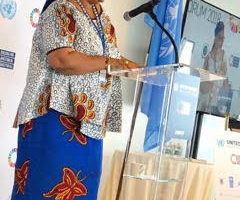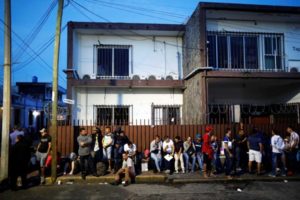Thousands of frustrated travellers hoping to fly to Christmas celebrations faced a wave of last-minute cancellations, as a spike in coronavirus cases sidelined airline workers who had contracted the virus or had been exposed to the omicron variant.
About 4,000 flights around the world scheduled for Christmas Eve or Christmas Day were scrapped, according to FlightAware, an aviation data provider — more than 1,000 of them in the United States.
The cancellations forced stranded passengers in crowded airports from Atlanta to Minneapolis to Washington, DC, to embark on frantic planes-trains-and-automobiles efforts to get where they were going.
Thursday started off well, with fewer than 300 cancellations in the United States, but in the evening, carriers began announcing problems.
Delta Air Lines, which FlightAware said canceled about 160, or 8 percent, of its flights scheduled for Friday, was exhausting “all options and resources,” including rerouting and substituting planes and crews to cover scheduled flights, said Kate Modolo, a spokesperson for the carrier. Delta expected to cancel at least 150 more flights over the weekend, she said.
United Airlines canceled about 185 of its flights scheduled for Friday, said Maddie King, a spokesperson for the carrier. The main cause: crew members calling in sick. Another 120 cancellations were planned for Saturday.
Brett Snyder, who worked in the aviation industry and now blogs at the website Cranky Flier, noted that such stopgap measures were no real match for the disruptions caused by the virus.
“You can only be so prepared when omicron starts racing through your pilot corps,” Snyder said. “If your pilot has a cold, they can still fly. If a pilot gets COVID, they have to stay away for 10 days..”
Airlines for America, a trade group, on Thursday asked the Centers for Disease Control and Prevention to shorten the recommended isolation period for employees who test positive for COVID-19 from 10 days to “no more than five days,” with a negative test to return, as the agency has done for health care workers.
Sara Nelson, president of the Association of Flight Attendants union, resisted the change, telling the CDC in a letter that changing protocols “should be based on science, not staffing, and they should be made by public health professionals, not airlines.”
© 2021 The New York Times Company






















